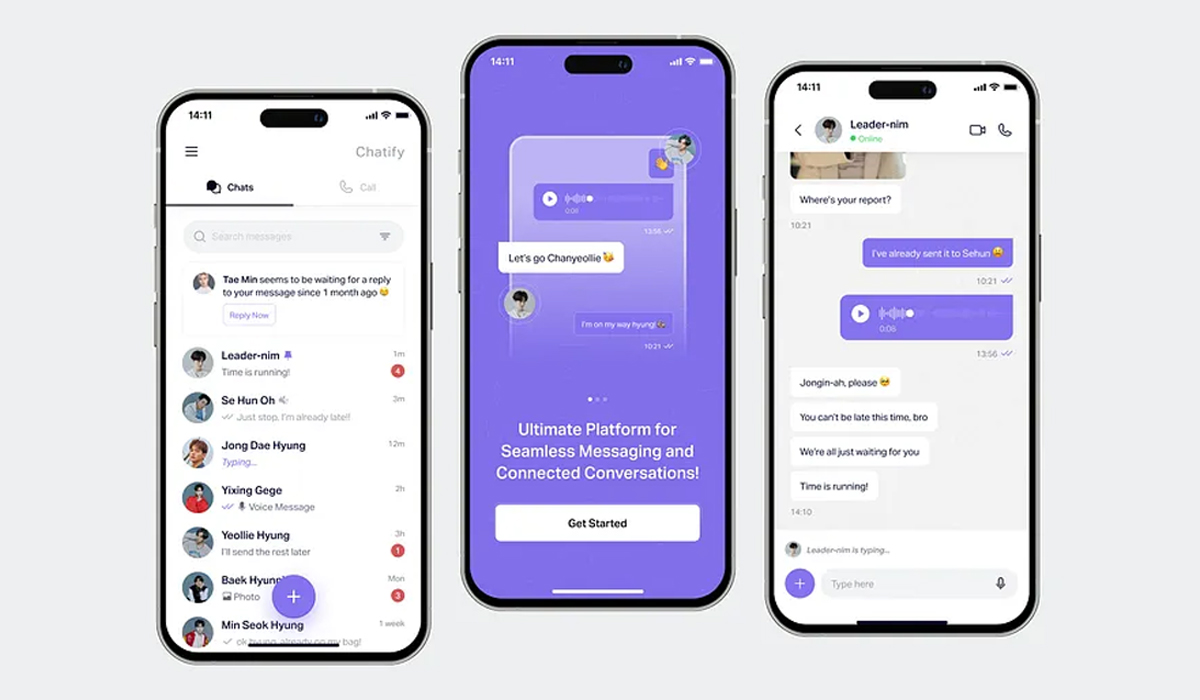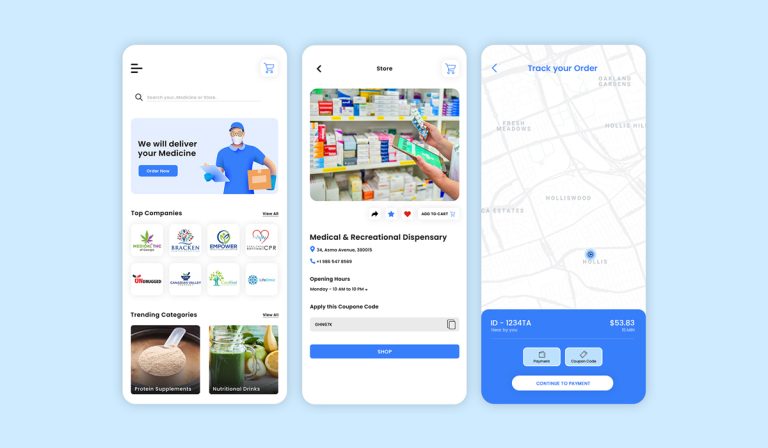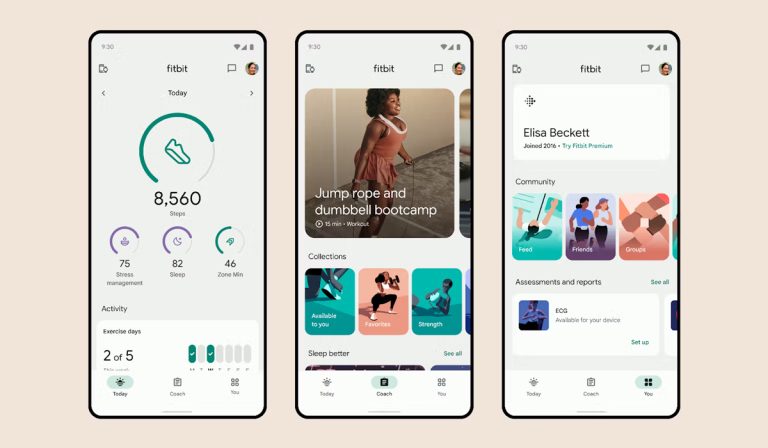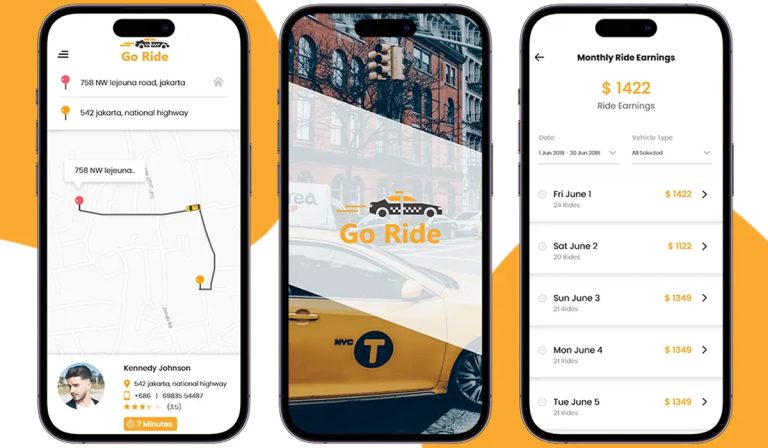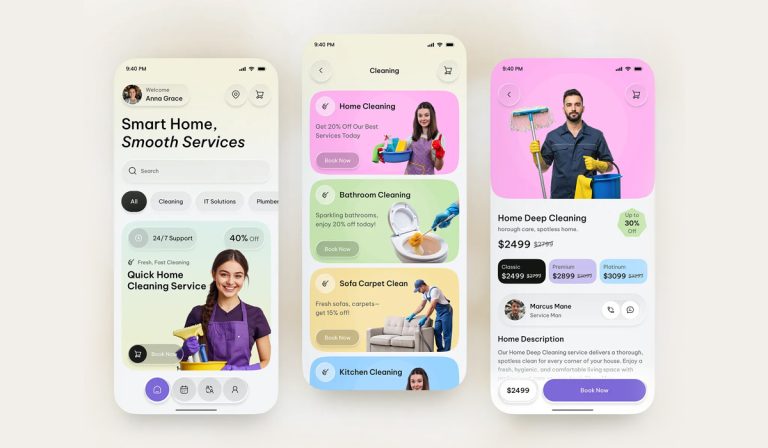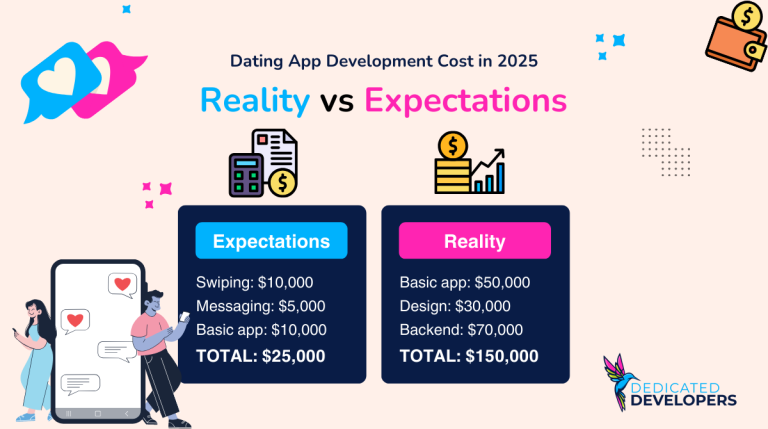Messaging App Development Cost in 2025: What Actually Drives the Price
My messaging app just needs text and emojis.
How expensive could it be?
Five months and $135,000 later, this founder learned that building a messaging app isn’t about replicating WhatsApp’s interface—it’s about creating infrastructure that can deliver billions of messages instantly, maintain end-to-end encryption, handle multimedia at scale, and keep conversations synchronized across devices without a single message lost or delayed.
After building 300+ successful apps (including messaging platforms with over 5 million active users), we’ve learned that messaging app development costs range from $80,000-$300,000 for a competitive platform. The difference between a failed experiment and a thriving business? Understanding that modern users expect Signal-level security, Telegram-speed performance, and WhatsApp-quality reliability—all while maintaining real-time synchronization across unlimited devices under massive load.

Market Landscape
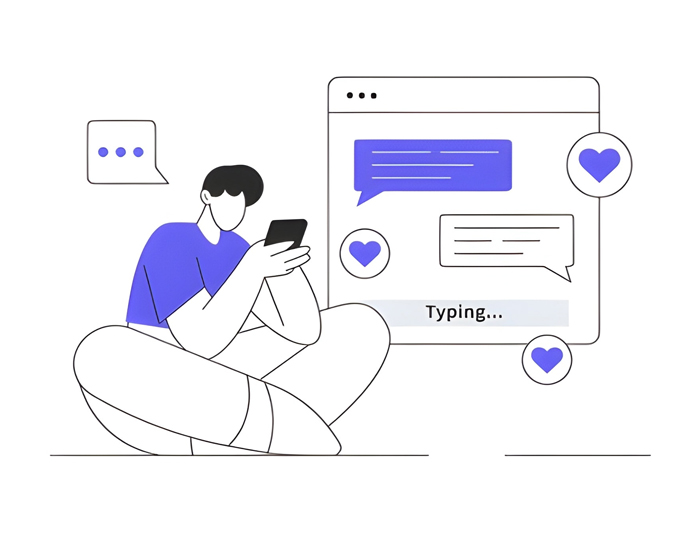
Market Fundamentals:
Current Market Size
$94.2 billion (2024)
Projected Market Size
$340.1 billion by 2032
Growth Rate
17.3% CAGR
Global Active Users
3.09 billion messaging app users worldwide
Daily Messages
100+ billion messages sent daily across platforms
Market Leaders & Their Success

2+ billion users, 100+ billion messages daily, acquired by Meta for $19 billion

1.3+ billion users, $17 billion revenue (2023), dominant super-app in China

900+ million users, fastest-growing platform, privacy-focused positioning

40+ million users, gold standard for privacy and security, open-source model

150+ million monthly users, $445 million revenue, gaming and communities focus
Emerging Opportunities:
- Enterprise and business communication platforms
- Privacy-first messaging with blockchain integration
- Decentralized messaging networks
- Web3 and crypto-integrated messaging
- Industry-specific messaging (healthcare, finance, education)
- AI-powered translation and conversation assistance
- Integration platforms connecting existing messaging apps

Essential Features Deep Dive
Core Features (Market Entry Requirements)
Development Cost: $30,000-$55,000
User Authentication & Profile Management
- Phone number/email verification
- Username and profile customization
- Profile photos and status updates
- Contact synchronization from phone
- Block and report functionality
- Privacy settings and controls
- Multi-device support
- Instant message delivery and synchronization
- Message status indicators (sent, delivered, read)
- Typing indicators
- Message editing and deletion
- Forward and share functionality
- Reply and quote messages
- Message search functionality
Group Conversations
- Create and manage group chats
- Group admin controls and permissions
- Add/remove participants
- Group info and settings
- Group notifications management
- Member list and profile access
- Group exit functionality
- Photo and video sharing
- Voice message recording and playback
- Document and file sharing
- GIF and sticker support
- Image compression and optimization
- Media gallery view
- Download and save media
- Message notifications with previews
- Customizable notification sounds
- Notification grouping by conversation
- Do Not Disturb mode
- Custom notification settings per chat
- Badge counts and app icon updates
- Secure message transmission (HTTPS)
- Authentication tokens and session management
- Basic encryption at rest
- Secure file storage
- Password protection options
- Two-factor authentication (2FA)
Competitive Features (Differentiation Factors)
Development Cost: $40,000-$80,000
End-to-End Encryption
- Signal Protocol or custom encryption
- Encrypted message storage
- Key exchange and management
- Perfect forward secrecy
- Security code verification
- Encrypted backups
- One-to-one voice calls
- One-to-one video calls
- Group voice calls (up to 10 participants)
- Call quality optimization
- Call history and logs
- Missed call notifications
- In-call controls (mute, speaker, video toggle)
Advanced Group Features
- Large group support (1,000+ members)
- Broadcast lists and channels
- Admin hierarchy and roles
- Group mentions and tags
- Polls and voting
- Pinned messages
- Group invite links
- Custom sticker packs
- Animated emoji and reactions
- Location sharing
- Contact card sharing
- Voice filters and effects
- Photo editing tools
- Video compression and streaming
Message Management
- Message scheduling
- Auto-delete messages (time-based)
- Archive conversations
- Star/favorite messages
- Export chat history
- Search with filters
- Message categories and folders
- Photo/video status updates
- 24-hour story functionality
- View counts and viewer lists
- Status privacy controls
- Reply to status
- Status muting
- Custom status text
Premium Features (Revenue Drivers)
Development Cost: $50,000-$100,000
Business & Enterprise Tools
- Business profiles and verification
- Business catalogs and showcases
- Customer messaging tools
- Automated responses and bots
- Message templates
- Analytics and insights
- API access for integration
- Team collaboration features
Advanced Communication
- Screen sharing capabilities
- Large group video calls (50+ participants)
- Live streaming to groups
- Broadcast channels (unlimited subscribers)
- Message translation
- Voice message transcription
- Meeting scheduling and calendar integration
- Cloud-based message storage
- Unlimited chat history
- Cross-device synchronization
- Multi-device simultaneous use
- Desktop and web applications
- File storage and organization
- Search across all devices
- Custom themes and appearance
- Chat backgrounds and colors
- Font size and style options
- Notification customization per contact
- Custom ringtones and sounds
- Folder organization
- Quick reply templates
- Disappearing messages (auto-delete)
- Screenshot notification
- View-once media
- Encrypted voice/video calls
- Secure file vault
- Biometric authentication (Face ID, fingerprint)
- Remote device logout
- Privacy audits and transparency reports
- Premium subscriptions
- In-app purchases (stickers, themes)
- Business account subscriptions
- Advertising platform (for channels)
- Payment and money transfer integration
- Cryptocurrency wallet integration
- NFT profile pictures
Future-Proofing Features (Long-term Success)
Development Cost: $35,000-$70,000
AI & Machine Learning
- Smart reply suggestions
- Message categorization and filtering
- Spam and scam detection
- AI-powered translation
- Voice assistant integration
- Predictive typing
- Content moderation automation
- Sentiment analysis
- Decentralized messaging architecture
- Blockchain-based identity verification
- Cryptocurrency tipping and payments
- NFT integration and display
- Token-gated communities
- DAO governance features
- Encrypted blockchain storage
- Shared task lists and to-dos
- Collaborative documents and notes
- Project management integration
- Calendar scheduling within chat
- Polls and surveys with analytics
- Integration with productivity tools
- Meeting notes and recordings
- AR filters and effects
- Virtual reality chat rooms
- Spatial audio for group calls
- Holographic messaging
- Wearable device integration
- IoT device messaging and control
- Neural interface preparation
Development Cost Breakdown

MVP Messaging App: $80,000-$135,000
Timeline: 4-6 months
Core Development Breakdown:
Backend Development: $25,000-$40,000
- User authentication and profile management
- Real-time messaging infrastructure (WebSocket)
- Message delivery and synchronization
- Group chat management
- Media storage and CDN integration
- Push notification system
- Database design and optimization
- API development and documentation
- iOS and Android native apps
- Real-time chat interface
- Contact management
- Media sharing and viewing
- Push notification handling
- Offline message queuing
- App optimization and testing
- User research and competitive analysis
- Wireframing and user flows
- Visual design and branding
- Chat UI/UX design
- Icon and asset creation
- Animation and transitions
- Usability testing
- Functional testing across devices
- Real-time messaging testing
- Network condition testing
- Media upload/download testing
- Security testing
- Performance and load testing
- Bug fixing and optimization
- Project coordination
- Sprint planning and management
- App store submission
- Initial deployment
- Documentation
- Push notification services (Firebase)
- Cloud storage (AWS S3, CloudFront)
- Analytics and crash reporting
- CDN for media delivery
Standard Messaging Platform: $140,000-$210,000
Timeline: 6-9 months
Enhanced Features Addition:
- Signal Protocol implementation
- Key management system
- Encrypted media storage
- Security verification features
- Encrypted backup system
- Perfect forward secrecy
- WebRTC integration
- Audio/video codec optimization
- Network adaptation
- Call signaling and management
- Group calling infrastructure
- Echo cancellation and noise reduction
Advanced Group Features: $15,000-$28,000
- Large group support (1,000+ members)
- Admin and permission system
- Broadcast channels
- Group analytics
- Invite link system
- Advanced moderation tools
- Multi-device support
- Message sync across devices
- Cloud storage integration
- Offline message handling
- Conflict resolution
- Desktop and web apps
- Business profiles
- Catalog and showcase
- Automated messaging
- Bot framework
- Analytics dashboard
- API for integration
Premium Messaging Solution: $220,000-$300,000
Timeline: 9-14 months
Enterprise-Grade Features:
- Smart reply and suggestions
- Spam and fraud detection
- Real-time translation
- Content moderation AI
- Sentiment analysis
- Voice transcription
- Chatbot development framework
- Microservices architecture
- Global message distribution
- Edge computing integration
- Advanced caching strategies
- Auto-scaling systems
- Multi-region deployment
- Disaster recovery
- Team management features
- Project integration
- File collaboration
- Screen sharing
- Meeting management
- Admin console
- Advanced security controls
- Decentralized messaging layer
- Cryptocurrency integration
- NFT features
- Token-based features
- Smart contract integration
- Blockchain identity verification
Development Timeline Reality
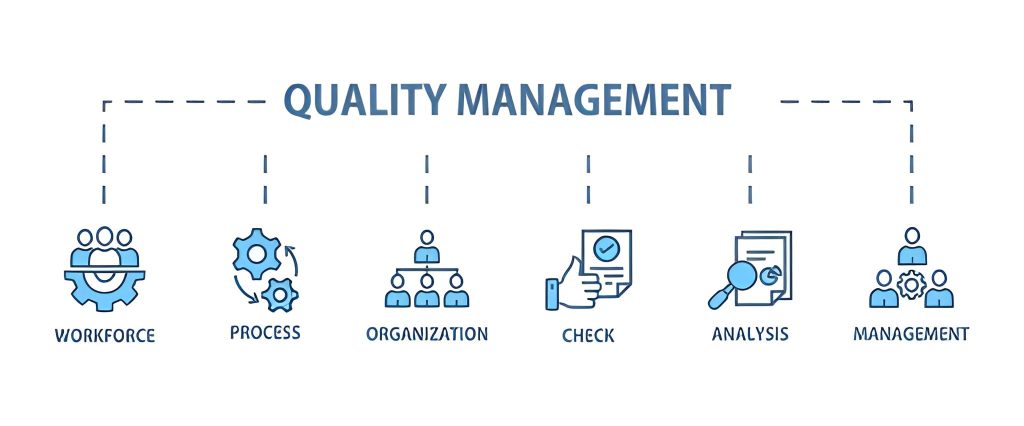
Phase 1: Discovery & Strategic Planning (4-6 weeks)
Market Research & Competitive Analysis (1-2 weeks):
- Target audience research and user interviews
- Competitive feature analysis (WhatsApp, Telegram, Signal)
- Market positioning and differentiation strategy
- Privacy and security requirements research
- Monetization model validation
- Regulatory and compliance research
Technical Architecture & Planning (2-3 weeks):
- System architecture design
- Real-time messaging infrastructure planning
- Encryption protocol selection
- Technology stack selection
- Scalability and performance planning
- Security framework design
- Data storage and sync strategy
Feature Prioritization & Roadmap (1-2 weeks):
- MVP feature definition
- User story mapping
- Development sprint planning
- Risk assessment
- Resource allocation
- Budget finalization
Phase 2: Design & Prototyping (3-5 weeks)
User Experience Design (1.5-2.5 weeks):
- User journey mapping
- Chat interface wireframing
- Information architecture
- Interaction design
- Usability testing
- Accessibility considerations
Visual Design & Branding (1.5-2.5 weeks):
- Brand identity development
- Visual language and style guide
- Chat bubble and message design
- Icon and illustration creation
- Animation and micro-interactions
- Dark mode design
- Asset optimization
Phase 3: Core Development (12-18 weeks)
Backend Infrastructure Development (5-7 weeks):
- User authentication system
- Real-time messaging server (WebSocket)
- Message queue and delivery system
- Database schema implementation
- Media storage and CDN setup
- Push notification integration
- API development
Mobile App Development (6-9 weeks):
- iOS and Android app structure
- Chat interface implementation
- Contact management
- Media sharing functionality
- Real-time message synchronization
- Offline support
- Push notification handling
Integration & Testing (1-2 weeks):
- Backend and frontend integration
- Third-party service integration
- Cross-platform testing
- Real-time synchronization testing
- Network condition testing
Phase 4: Advanced Features (6-10 weeks)
Enhanced Functionality (3-5 weeks):
- End-to-end encryption implementation
- Voice and video calling
- Group features and management
- Status/stories functionality
- Advanced media handling
- Message management features
Multi-Platform Development (2-3 weeks):
- Desktop application (Windows, Mac)
- Web application
- Cross-device synchronization
- Cloud backup system
Performance Optimization (1-2 weeks):
- Load testing and optimization
- Message delivery optimization
- Media compression and streaming
- Battery and data usage optimization
- Security hardening
Phase 5: Quality Assurance & Launch Preparation (4-6 weeks)
Comprehensive Testing (2-3 weeks):
- Functional testing across all features
- Real-time messaging stress testing
- Encryption and security testing
- Multi-device synchronization testing
- Network condition testing (slow, offline)
- Load testing (concurrent users)
- Security penetration testing
Launch Preparation (1-2 weeks):
- App store optimization
- Marketing material preparation
- User onboarding flow
- Help documentation
- Privacy policy and terms
- Customer support setup
Post-Launch Monitoring (1 week):
- Launch execution
- User feedback collection
- Performance monitoring
- Critical bug fixes
- Metric tracking

Infrastructure & Operational Costs:
Server & Hosting: $2,000-$15,000/month
- Real-time messaging servers scale exponentially with users
- WebSocket server costs for persistent connections
- Media storage (images, videos, files)
- Message database and backup
- Global CDN for media delivery
- Load balancers and redundancy
Third-party Services: $1,000-$8,000/month
- Push notifications: $200-$1,000/month
- SMS verification: $300-$1,500/month
- Cloud storage and CDN: $500-$3,000/month
- Video/voice calling infrastructure: $400-$2,500/month
- Analytics and monitoring: $100-$500/month
Security & Compliance: $15,000-$35,000 initial + $2,000-$8,000/month
- Security audits and penetration testing
- Encryption certificate management
- Compliance (GDPR, CCPA, etc.)
- Data privacy assessments
- Regular security updates
- Content moderation services
Marketing & User Acquisition: $10,000-$100,000+/month
- User acquisition campaigns
- Social media marketing
- Influencer partnerships
- App store optimization
- Content marketing
- PR and media coverage
Customer Support: $2,000-$12,000/month
- Support staff
- Ticketing system
- Help center and documentation
- Community management
- 24/7 support for critical issues
Why Budget Development Fails:
Messaging apps launched with $40,000-$60,000 budgets typically crash within 2-3 months when they hit 10,000+ active users. Real-time infrastructure cannot handle concurrent connections, message delivery fails under load, and media sharing becomes impossibly slow. Users expect instant message delivery—even a 2-second delay destroys trust and causes permanent abandonment.
Technology Stack & Architecture

Mobile Development Approaches:
Native Development (iOS + Android): $50,000-$80,000
- Best performance for real-time messaging
- Optimal battery and data usage
- Full access to device capabilities
- Superior offline support
- Platform-specific optimizations
- Required for competitive messaging apps
Cross-Platform (React Native/Flutter): $35,000-$60,000
- Faster development timeline
- Shared codebase efficiency
- Good performance for most features
- Slight limitations with real-time optimization
- Suitable for MVP and market testing
Hybrid Development: $25,000-$42,000
- Lowest initial cost
- Performance limitations for real-time features
- Not recommended for messaging apps
- Poor offline support
Backend Infrastructure Requirements
Core Backend Services:
Real-Time Messaging: Node.js with WebSocket, Erlang (ejabberd), or Go for high concurrency
Message Queue: RabbitMQ, Apache Kafka, or Redis for message delivery
Database: PostgreSQL for user data, Cassandra or MongoDB for messages (high write throughput)
Media Storage: AWS S3, Google Cloud Storage with CloudFront/Cloudflare CDN
Caching: Redis for online status, recent messages, active sessions
Typical Backend Development Cost: $25,000-$45,000 for MVP
Scalability Considerations:
Microservices Architecture: Essential for apps targeting 100,000+ users
Message Sharding: Distribute message load across multiple servers
WebSocket Connection Pools: Manage thousands of concurrent connections
Geographic Distribution: Multi-region servers for low latency worldwide
Real-Time Synchronization: Complex state management across devices
Critical Third-Party Integrations
Essential Services:
Push Notifications: Firebase Cloud Messaging (FCM), Apple Push Notification (APN)
Voice/Video: Twilio, Agora, WebRTC for calling features
Cloud Storage: AWS S3, Google Cloud Storage, Azure Blob Storage
CDN: Cloudflare, AWS CloudFront, Fastly for media delivery
Analytics: Mixpanel, Amplitude, Firebase Analytics
Crash Reporting: Crashlytics, Sentry for stability
Messaging-Specific Integrations:
Encryption: Signal Protocol, LibSodium for cryptography
SMS Verification: Twilio, MessageBird, Vonage for phone verification
Spam Detection: Akismet, custom ML models
Translation: Google Translate API, Microsoft Translator
Content Moderation: AWS Rekognition, Microsoft Content Moderator
Voice Processing: Krisp.ai for noise cancellation
Regional Cost Analysis
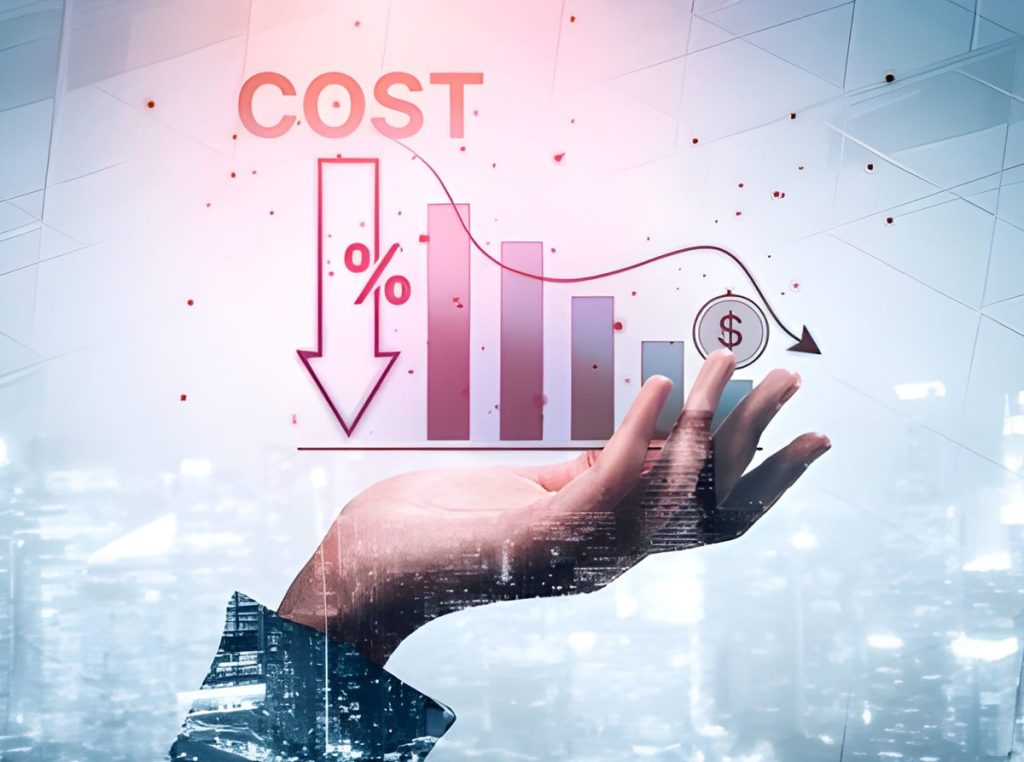
North America (Premium Quality)
United States & Canada
Hourly Rate: $125-$200
Project Cost: $130,000-$300,000
Timeline: Standard to faster
Advantages:
- Native communication, same timezone
- Deep expertise in real-time systems and WebSocket
- Strong security and encryption knowledge
- Experience with scalable messaging infrastructure
- Regulatory and privacy compliance expertise
Eastern Europe (Excellent Value)
Poland, Ukraine, Romania
Hourly Rate: $50-$95
Project Cost: $80,000-$190,000
Timeline: Standard
Advantages:
- Strong technical skills in real-time systems
- Good English communication
- Experience with messaging protocols
- Cost-effective quality development
- Cultural alignment with Western markets
Asia (Cost-Effective)
India, Vietnam, Philippines
Hourly Rate: $25-$65
Project Cost: $55,000-$140,000
Timeline: Longer due to communication overhead
Advantages:
- Lowest development costs
- Large talent pool
- 24/7 development cycle potential
Considerations:
- Timezone challenges (12-hour difference)
- Real-time feature complexity requires experienced teams
- Communication barriers
- Quality variation between providers
- Less experience with advanced encryption
Hybrid Approach (Recommended)
Distributed Team Strategy:
Team Structure:
- US-based product management and security architecture
- Eastern European development team for core features
- Asian QA, testing, and customer support
- Centralized DevOps and infrastructure management
Cost Savings: 30-45% vs full US team
Quality: Maintained through strong leadership and security protocols
Typical Hybrid Cost: $90,000-$200,000 for full platform
Why This Works:
- Security expertise where critical
- Cost optimization for feature development
- Follow-the-sun development
- Balanced communication and execution
Monetization & ROI Analysis

Proven Revenue Models
Freemium Subscription Model (Primary for 75% of messaging apps):
- Free Tier: Basic messaging, calls, small file sharing
- Premium Subscriptions: $2.99-$9.99/month
- Business Subscriptions: $19.99-$99/month per user
- Conversion Rates: 2-6% of active users
- Average Revenue Per User (ARPU): $1.50-$4/month for paying subscribers
In-App Purchases:
- Sticker packs: $0.99-$2.99 per pack
- Custom themes: $0.99-$4.99
- Premium emoji and reactions: $0.99-$1.99
- Storage upgrades: $0.99-$4.99/month
- Advertising removal: $2.99-$9.99 one-time
Business & Enterprise Model:
- Business accounts: $10-$50/month per business
- API access: $99-$999/month based on usage
- White-label licensing: $10,000-$50,000+ annually
- Enterprise deployment: Custom pricing
- Integration marketplace: Revenue share (20-30%)
Advertising (For Free Tiers):
- Channel/Status ads: CPM $0.50-$5
- Native advertising in public channels
- Sponsored stickers and content
- Business discovery and promotion
Revenue Benchmarks by App Maturity
Months 1-6 (Launch Phase):
- Active Users: 5,000-50,000 registered users
- Daily Active Users (DAU): 20-40% of registered
- Conversion Rate: 0.5-2% (limited features)
- Monthly Revenue: $500-$5,000
- Primary Goal: User growth and engagement
Months 6-18 (Growth Phase):
- Active Users: 50,000-500,000 users
- Daily Active Users (DAU): 35-50% of registered
- Conversion Rate: 2-5%
- Monthly Revenue: $5,000-$60,000
- Primary Goal: Feature expansion and monetization
Months 18+ (Maturity Phase):
- Active Users: 500,000-5,000,000+ users
- Daily Active Users (DAU): 45-60% of registered
- Conversion Rate: 4-8%
- Monthly Revenue: $60,000-$800,000+
- Primary Goal: Profitability and market expansion
User Acquisition Cost Analysis
Average Customer Acquisition Cost (CAC) by Channel:
- Social Media Advertising: $2-$8 per user
- Word-of-mouth/Viral Growth: $0.50-$2 per user
- Influencer Marketing: $3-$12 per user
- Content Marketing/SEO: $1-$5 per user
- App Store Optimization: $1-$4 per user
- Referral Programs: $0.50-$3 per user
Lifetime Value (LTV) Calculations:
- Average User Lifespan: 18-36+ months (high retention for messaging)
- Monthly Engagement: 25-30 days active per month
- Revenue per Paying User: $2-$8/month
- Estimated LTV: $36-$288 per paying subscriber
- Target LTV:CAC Ratio: 5:1+ due to viral growth potential
Break-Even Analysis
Conservative Growth Scenario:
- Development Investment: $100,000
- Monthly Operating Costs: $8,000-$18,000
- User Growth Rate: 20% monthly
- Break-Even Timeline: 18-28 months
- Required User Base: 200,000-400,000 active users
Aggressive Growth Scenario:
- Development Investment: $180,000
- Monthly Operating Costs: $18,000-$35,000
- User Growth Rate: 40% monthly
- Break-Even Timeline: 12-18 months
- Required User Base: 500,000-1,000,000 active users
Success Stories & Case Studies

Case Study 1: Regional City Taxi Platform
Client Background:Secure messaging app for professionals and activists
Investment: $165,000 over 11 months
Timeline: MVP in 6 months, full platform in 11 months
Key Metrics:
- User Growth: 0 to 250,000 registered users in 16 months
- Daily Active Users: 58% (high engagement for privacy focus)
- Monthly Messages: 180 million
- Average Session Time: 12 minutes per session
- User Retention: 72% monthly retention (exceptional for messaging)
Success Factors:
- End-to-End Encryption: Signal Protocol built trust
- Open Source: Transparency attracted privacy advocates
- No Data Collection: Privacy-first approach resonated
- Cross-Platform: Seamless sync across all devices
- Self-Destructing Messages: Unique privacy feature
Lessons Learned:
- Privacy features are powerful differentiators
- Open-source builds community trust
- Privacy-conscious users become evangelists
- Word-of-mouth growth reduces CAC dramatically
- Security audits worth the investment
Case Study 2: Team Collaboration Messaging App
Client Background:Business messaging and collaboration platform
Investment:$195,000 over 12 months
Timeline:Beta launch in 7 months, full launch in 12 months
Key Metrics:
- User Growth: 0 to 150,000 business users in 20 months
- Daily Active Teams: 8,500+ organizations
- Average Team Size: 15-50 members
- Monthly Revenue: $85,000 by month 24
- Conversion to Paid: 12% of teams (high for B2B)
Success Factors:
- Integration Ecosystem: Connected with 50+ business tools
- Threaded Conversations: Organized communication
- File Collaboration: Integrated document editing
- Video Conferencing: Built-in meetings
- Enterprise Security: SOC 2 compliance
Lessons Learned:
- B2B messaging has higher ARPU than consumer
- Integration marketplace drives adoption
- Enterprise security features justify premium pricing
- Team admin features critical for B2B
- Customer support quality drives retention
Case Study 3: Community-Focused Messaging Platform
Client Background:Interest-based community messaging app
Investment:$145,000 over 10 months
Timeline:MVP in 5 months, full platform in 10 months
Key Metrics:
- User Growth: 0 to 450,000 users in 18 months
- Active Communities: 12,000+ interest-based groups
- Average Community Size: 85 members
- Daily Active Users: 48%
- Monthly Revenue: $42,000 from premium features
Success Factors:
- Topic-Based Discovery: Find communities easily
- Rich Media Support: GIFs, stickers, custom reactions
- Moderation Tools: Effective community management
- Voice Channels: Always-on audio rooms
- Events Integration: Schedule and promote meetups
Lessons Learned:
- Community features drive engagement
- Moderation tools essential for healthy communities
- Voice features increase time spent in app
- Topic discovery more important than social graph
- User-generated content (stickers) builds loyalty
Case Study 4: Media-Rich Messaging App
Client Background:Visual-first messaging for Gen Z
Investment: $175,000 over 13 months
Timeline: MVP in 6 months, full platform in 13 months
Key Metrics:
- User Growth: 0 to 680,000 users in 22 months
- Daily Active Users: 52%
- Daily Messages: 45 million (heavy usage)
- Stories Posted: 850,000 daily
- In-App Purchases: $38,000/month (stickers, filters)
Success Factors:
- AR Filters: Unique camera effects
- Ephemeral Messaging: Auto-delete after viewing
- Story Features: 24-hour multimedia updates
- Custom Stickers: User-created content
- Game Integration: Play games in chat
Lessons Learned:
- Visual features resonate with younger audiences
- Ephemeral content drives frequent engagement
- In-app purchases work for expression features
- Camera features differentiate from competitors
- Gamification increases retention significantly
Cost-Related Questions
Q: What's the minimum budget needed for a competitive messaging app?
Q: Why do messaging app costs vary so dramatically?
Q: What drives messaging app costs higher than other app types?
Q: Are there ways to reduce costs without compromising quality?
Timeline and Development Process
Q: How long does it realistically take to build a messaging app?
Q: Can we launch with basic features and add advanced ones later?
Q: What happens if development takes longer than estimated?
Technology and Architecture
Q: Should we build native apps or use cross-platform development?
Q: What backend infrastructure do we need for a messaging app?
Q: How important is end-to-end encryption?
Q: Do we need to build separate apps for iOS, Android, web, and desktop?
Business Model and ROI
Q: How much revenue can a successful messaging app generate?
Q: What's the typical return on investment timeline?
Q: What ongoing costs should we budget for?
Q: What security measures are essential for a messaging app?
Q: How do we handle content moderation?
Q: What compliance requirements should we know about?
Next Steps & Action Plan
Pre-Development Preparation Checklist
Market Validation (3-4 weeks):
- Conduct target audience research and user interviews
- Analyze competitor features and positioning
- Identify unique value proposition and differentiation
- Validate use cases (personal, business, community, niche)
- Assess market size and growth potential
- Research privacy concerns and security expectations
Business Planning (2-3 weeks):
- Develop business model (freemium, business, ads)
- Create revenue projections and growth scenarios
- Plan user acquisition strategy (viral, paid, organic)
- Establish success metrics (DAU, retention, engagement)
- Define monetization timeline
- – ☐ Plan for network effects and viral growth
Technical Preparation (2-3 weeks):
- Research real-time infrastructure requirements
- Evaluate encryption protocols (Signal, custom)
- Assess scalability needs for target user base
- Research third-party services (push, calling, storage)
- Understand multi-device synchronization complexity
- Review security and compliance requirements
Legal & Privacy (2-3 weeks):
- Consult legal counsel for privacy policy
- Understand data retention requirements
- Review encryption regulations by country
- Assess age restriction requirements (COPPA)
- Research content moderation obligations
- Develop terms of service
Budget Planning Worksheet
Development Investment:
- MVP Development: $80,000-$135,000
- End-to-End Encryption: +$15,000-$30,000
- Voice & Video Calling: +$20,000-$40,000
- Multi-Platform (Web/Desktop): +$15,000-$30,000 per platform
- Advanced Features: +$25,000-$50,000
- Quality Assurance & Testing: 15-20% of development cost
- Project Management: 10-15% of development cost
- Security Buffer: 10% for security audits and testing.
Operational Budget (Monthly):
- Infrastructure & Hosting: $2,000-$15,000
- Third-party Services: $1,000-$8,000
- Customer Support: $2,000-$12,000
- Marketing & User Acquisition: $10,000-$100,000+
- Security & Compliance: $1,000-$5,000
- Content Moderation: $1,000-$6,000
- Maintenance & Updates: $3,000-$15,000
Timeline Planning:
- Planning & Discovery: 4-6 weeks
- MVP Development: 16-24 weeks
- Testing & Launch: 4-6 weeks
- Feature Enhancement: 8-16 weeks (ongoing)
- Total Time to Market: 7-11 months
Partner Selection Criteria
Essential Qualifications:
- Proven experience with real-time messaging apps
- Portfolio of apps with 100,000+ concurrent users
- Expertise in WebSocket and real-time infrastructure
- Experience with end-to-end encryption implementation
- Understanding of message queue systems
- Voice/video calling integration experience
- Multi-device synchronization expertise
- Strong security and privacy track record
- Post-launch support and scaling capabilities
Red Flags to Avoid:
- Promises of completion in under 4 months
- Quotes significantly below $60,000 for full platform
- No examples of real-time messaging applications
- Limited understanding of WebSocket architecture
- No experience with encryption protocols
- Poor communication or vague technical explanations
- No clear scalability plan
- Reluctance to provide client references
- No ongoing infrastructure support
Critical Success Factors
For Launch Success:
- Real-time message delivery (under 500ms)
- Rock-solid reliability (99.9%+ uptime)
- Seamless offline/online transitions
- Intuitive and fast user interface
- Viral invitation mechanism
- Strong security and privacy messaging
For Growth:
- Network effects and viral loops
- Multi-platform presence
- Unique differentiation (privacy, features, community)
- Word-of-mouth advocacy
- Low friction onboarding
- High engagement features
For Retention:
- Daily engagement hooks
- Group/community features
- Valuable content (not just messages)
- Platform lock-in (message history, groups)
- Continuous feature innovation
- Excellent performance and reliability
Ready to Build Your On-Demand Service Success Story?
After analyzing 300+ successful app launches and generating over $500 million in client revenue, we know what separates winners from the 82% that fail within their first year. Your messaging app success depends on three critical factors:
Real-Time Infrastructure Excellence: Message delivery must be instant and reliable under any load
Security & Privacy Foundation: End-to-end encryption and user trust are non-negotiable
Viral Growth Mechanics: Network effects must be built into the core product
Don’t gamble your vision on inexperienced developers or unrealistic promises. Get your real cost estimate, technical assessment, and strategic roadmap in our free “Idea-to-App” Strategy Session.
What You’ll Get:
- Detailed cost breakdown for your messaging platform
- Real-time infrastructure recommendations
- Encryption and security strategy
- Timeline and milestone planning
- Viral growth and engagement strategy
- Post-launch scaling and monetization roadmap
Why Choose Dedicated Developers:
- 300+ successful apps with proven track record
- Messaging platforms in our portfolio with 5+ million active users
- Average client ROI: 320% within 24 months
- 88% client retention rate (we grow with your success)
- Located in Alpharetta, GA with 15+ years of experience
- Specialized expertise in real-time systems and WebSocket architecture
Schedule Your Free Strategy Session Now
Call (770) 274-4482 or email Contact@DedicatedDevelopers.com

